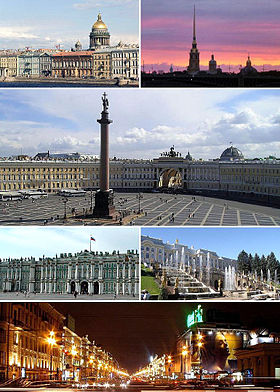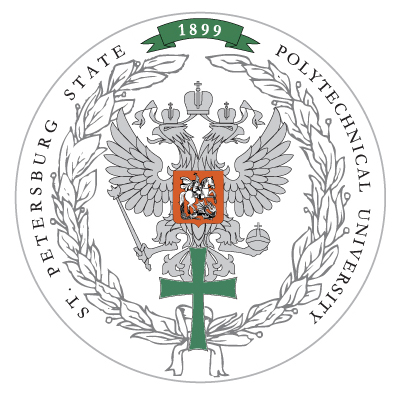* The 2014 International Conference on Mathematical Models and Methods in Applied Sciences is an international forum for mathematicians, scientists and engineers to present their latest research and development results in all areas of Mathematical Models and Applied Mathematics and their advanced applications in real life.
* The Conference has a distinguished Organizing Committee, Steering and Program Committee with extensive academic qualifications, ensuring that the conference maintains high scientific standards and has a broad international coverage. All the papers are subject to peer, thorough, strict review by committees' members or 2 or 3 additional reviewers. The names of the Organizing Committee, Steering and Program Committee members and reviewers appear always in the Proceedings (Hard-Copy Books + CD) and you can see them in http://www.inase.org/library . All the Proceedings are available in http://www.inase.org/library
Saint Petersburg is a world-class destination and
Russia's second largest city, with a population of more than 5
million perched at the eastern tip of of the Baltic Sea and the Neva
River. Saint Petersburg was the Imperial capital of Russia. The city
was formerly known as Petrograd and later Leningrad.
This is one of the most breathtakingly beautiful places on
earth, and virtually any building in the large historic
center, threaded with canals dotted with baroque bridges,
can be considered an attraction—and indeed, it is a UNESCO
World Heritage site. This is a magical city, with a long
list of major attractions. Its Hermitage Museum, housed in
the Winter Palace of the Romanov Dynasty, is both one of the
world's greatest and oldest collections of art, treasure,
and antiquities, and one of its most beautiful buildings.
Saint Petersburg is a major European cultural center, and
also an important Russian port on the Baltic Sea.
Proceedings:
The Proceedings of the Conference with all the accepted and registered papers of the
conferences will be sent for indexing to: ISI
(Thomson Reuters), ELSEVIER, SCOPUS, Zentralblatt MATH,
British Library,
EBSCO,
SWETS,
EMBASE,
CAS - American Chemical Society,
EI Compendex,
Engineering Village,
DoPP,
GEOBASE,
Biobase,
TIB|UB - German National Library of Science and Technology,
American Mathematical Society (AMS),
Inspec - The IET,
Ulrich's International Periodicals Directory, Scholar Google. As in all
the Previous Conferences, extended Versions of all the accepted
Papers will appear in well-known and reputable international
scientific journals (Indexed in SCOPUS, EI Compendex, AMS, ACS, CiteSeerX,
Zentralblatt, British Library, EBSCO, SWETS, EMBASE, CAS,
Scholar Google etc)
* Contact us by email:
support@inase.org
Registration fees
Publication Ethics and Malpractice Statement
Deadlines
Special Session 1
Plenary Lecture 1: Stiff Models and Gradient Methods with the Exponential Relaxation
by Prof. Igor G. Chernorutskiy, Saint Petersburg State Polytechnical University, Russia.
Plenary Lecture 2: EMG-Analysis for
Enhancing Efficiency and Performance of Electric Power Systems by Using Smart Grid Technology
by Prof. Nikolay V. Korovkin, Saint Petersburg State Polytechnical University, Russia.
Plenary Lecture 3: Modeling of Mechanism of State and Private Partnership Development of the Social Infrastructure in the Regions
by Prof. Vladimir V. Gluhov, Saint Petersburg State Polytechnical University, Russia.
Plenary Lecture 4: On Complete Monotonicity of Some Functions of the Mittag-Leffler Type in Non-Debye Relaxation Processes
by Prof. Francesco Mainardi, University of Bologna, Italy.
Plenary Lecture 5: From Physical to Mathematical Circuits: Theoretical and Practical Issues
by Prof. Massimo Ceraolo, University of Pisa, Italy.

